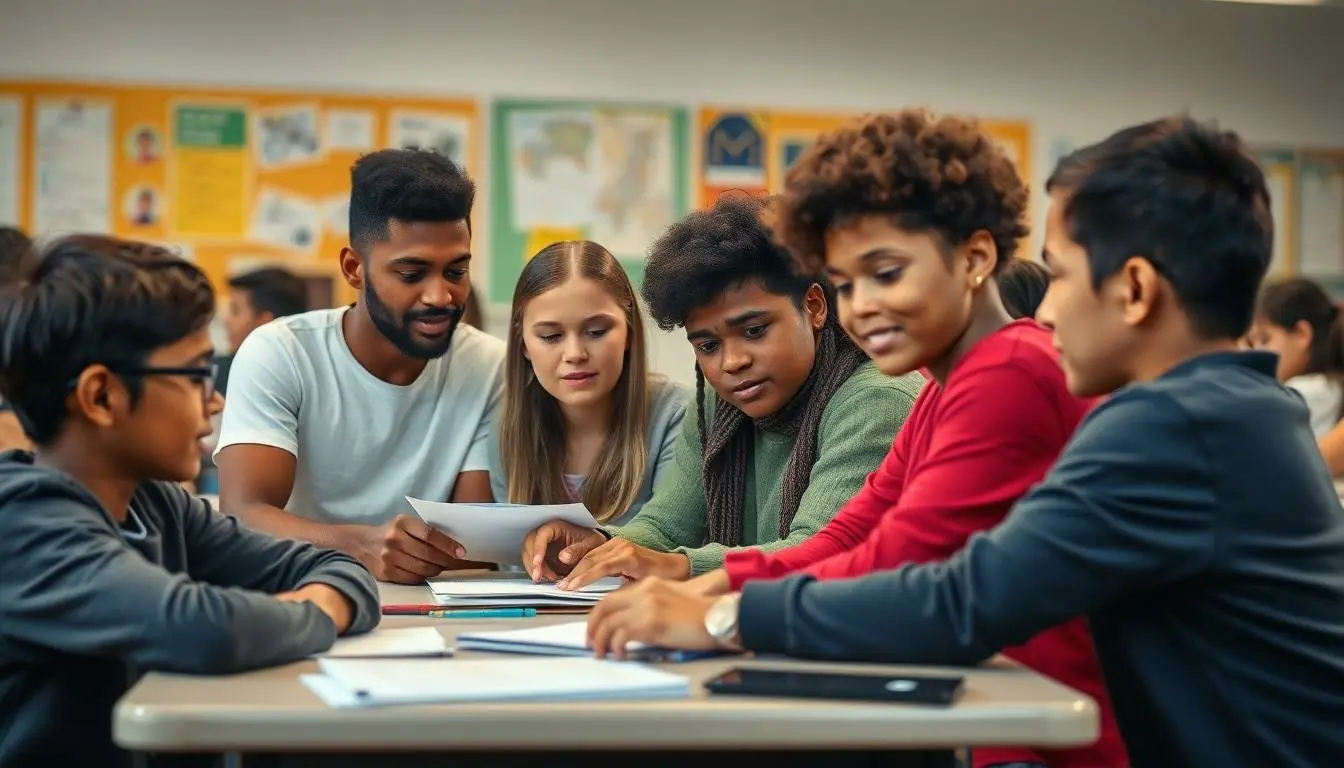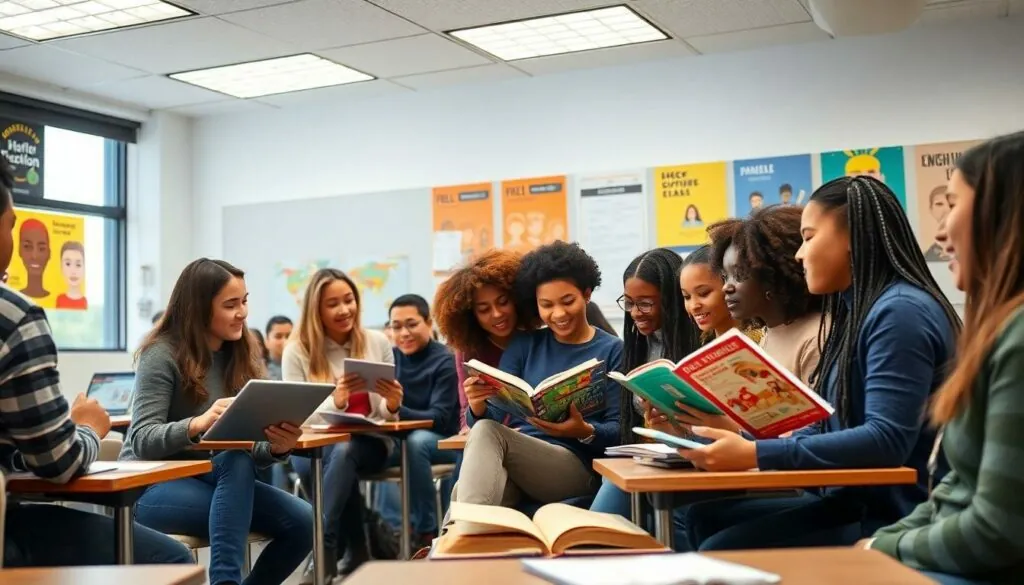Education is supposed to be the great equalizer, but in today’s world, it often feels more like a battleground. From debates over curriculum content to the ever-present tech vs. traditional teaching methods, the classroom is buzzing with controversies that could rival any reality TV show. Who knew that learning could spark such passionate arguments?
Table of Contents
ToggleOverview of Controversial Issues in Education Today
Debate surrounds many key topics in education, reflecting significant societal divides. Curriculum content often sparks disputes, particularly regarding the inclusion of diverse perspectives and historical accuracy. Critics argue that certain narratives overshadow essential views, impacting students’ understanding of history.
Technology integration also remains a contentious point. Some educators advocate for digital tools, emphasizing engagement and accessibility benefits. Conversely, others voice concerns about screen time and the loss of interpersonal skills. Balancing modern techniques with traditional methods presents a challenge for educators.
Student assessments face scrutiny. Standardized testing frequently triggers opposition, with some arguing it leads to a narrow focus on test preparation rather than holistic education. Meanwhile, advocates of assessments suggest they offer measurable benchmarks for student performance.
Another ongoing issue involves educational equity. Disparities based on socioeconomic status and geographical location amplify challenges. Marginalized students often experience systemic obstacles, from inadequate resources to limited access to quality teachers.
Mental health resources are increasingly recognized within educational institutions. Growing awareness of students’ mental health needs highlights gaps in available support services. Stakeholders call for expanding programs to address the rising mental health crises among youth.
Cultural relevance in educational settings draws attention as well. Some suggest that culturally responsive teaching enhance student engagement and achievement. Detractors, however, warn against diluting educational content for the sake of diversity.
Overall, these controversies reflect broader societal trends and values, shaping the future landscape of education. Engaging in these discussions remains critical for stakeholders aiming to improve the system for all students.
Policy Changes Impacting Education

Policy changes significantly affect educational practices and structures. Current debates primarily focus on student assessments and funding disparities.
Standardized Testing Debates
Standardized testing stirs controversy regarding its role in education. Critics argue that it narrows educational focus, pressuring students to engage in rote memorization instead of critical thinking. Proponents highlight the tests as necessary measures of academic performance, offering data to compare schools across regions. Discussions center on whether these assessments accurately reflect students’ abilities or unfairly disadvantage those in underfunded schools. Educational reforms suggest alternatives such as project-based assessments, aiming for a more holistic approach to student learning and evaluation.
School Funding Disparities
School funding disparities present significant challenges in achieving educational equity. Wealthier districts typically enjoy greater resources, enabling access to advanced courses and extracurricular activities. Conversely, underfunded schools often lack basic supplies, qualified teachers, and adequate facilities, leading to lower student outcomes. Advocates for reform call for equitable funding models that prioritize resources based on student needs rather than local property taxes. Legislative changes could address systemic inequities, ensuring all students receive a quality education regardless of their socioeconomic status.
Curriculum Controversies
Curriculum controversies dominate discussions in education today. Debates focus on content inclusion and how it reflects societal values.
Teaching Critical Race Theory
Critical race theory sparks intense debate in educational settings. Supporters advocate for its inclusion, citing its role in addressing systemic racism and promoting complex discussions about race. They emphasize that understanding diverse perspectives enhances critical thinking in students. Opponents argue that it teaches divisive viewpoints and undermines national unity. They claim that teaching these concepts can lead to discomfort among students and parents. School boards across the nation face pressure to adopt or reject critical race theory, illustrating the divide in educational philosophy.
Inclusivity in Sex Education
Inclusivity in sex education generates varying opinions among stakeholders. Proponents of comprehensive programs argue that inclusivity equips students with essential information about diverse identities and relationships. They highlight that such education reduces stigma and misinformation about sexual health. Opponents often express concerns over the appropriateness of discussing certain topics. They fear that inclusive content may conflict with parental values or cultural beliefs. Districts implement different curricula based on local norms, leading to inconsistencies in students’ educational experiences.
Technology in Education
Technology significantly influences modern educational practices, leading to both support and opposition. The rise of digital tools transforms classroom dynamics, enhancing engagement while raising concerns.
Online Learning vs. Traditional Classrooms
Online learning offers flexibility and accessibility, allowing students to engage from anywhere. Traditional classrooms foster face-to-face interactions, promoting social development and collaboration. Some educators argue that the personal connection found in in-person learning builds essential communication skills. Others assert that online platforms can cater to diverse learning styles through adaptive technology. The debate continues over which model better prepares students for future challenges, with proponents of both methods highlighting distinct advantages.
Privacy Concerns with Educational Tools
Privacy concerns arise as educational tools increasingly collect data from users. Many applications track student interactions, raising questions about the protection of personal information. Parents and educators express worries that data collection can lead to exploitation or mishandling. Compliance with regulations like FERPA becomes vital as schools adopt these technologies. Awareness regarding data security must grow alongside the integration of technology in classrooms for the protection of students and families.
Social Issues Affecting Education
Social issues significantly impact education today, influencing policies and classroom environments. Mental health awareness and bullying contribute to the evolving landscape of educational challenges.
Mental Health Awareness
Educators recognize the importance of mental health resources in schools. Increased mental health crises among youth necessitate expanded support services. Students facing anxiety, depression, or other challenges benefit from accessible counseling and programs. Schools implementing mental health initiatives report higher student engagement and academic performance. Collaborative efforts among educators, parents, and mental health professionals foster a supportive atmosphere. Prioritizing mental health in education promotes overall well-being and student success.
Bullying and Harassment in Schools
Bullying remains a pervasive issue in educational settings. Reports highlight the emotional toll bullying inflicts on students, affecting their academic performance and mental health. Schools implementing comprehensive anti-bullying policies create safer environments. Students equipped with coping strategies experience less anxiety related to harassment. Peer support programs encourage empathy and inclusivity among students. Addressing bullying requires continuous evaluation and community involvement, reinforcing a commitment to a supportive education system.
The landscape of education is more complex than ever as various controversial issues emerge. These debates not only reflect societal divides but also challenge educators to rethink traditional practices. The push for inclusivity in curriculum and the integration of technology raises questions about the best approaches to teaching and learning.
Addressing educational equity remains crucial as disparities in funding and resources continue to hinder opportunities for marginalized students. Furthermore, the growing awareness of mental health in schools highlights the need for comprehensive support systems to foster student well-being.
As these discussions evolve, collaboration among educators, parents, and policymakers will be essential in navigating the challenges ahead. Engaging in these critical conversations will ultimately shape a more equitable and effective educational system for all students.





